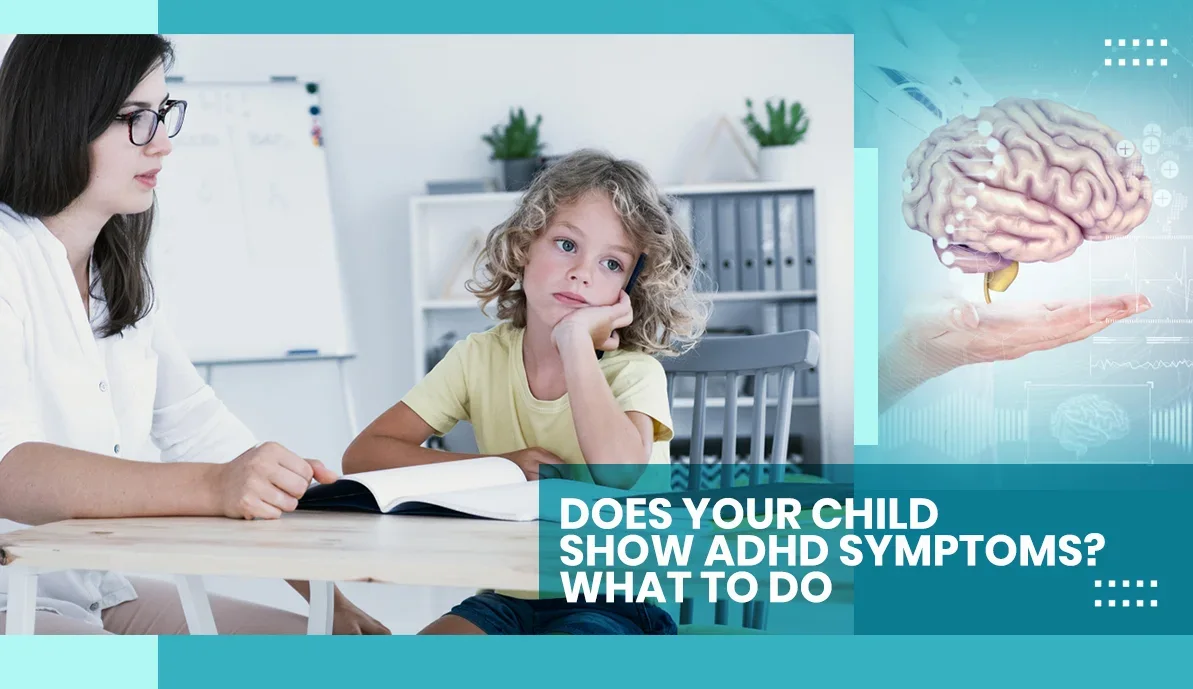Does your kid face difficulty concentrating on an activity or show impulsive behavior? Are the symptoms an indication of ADHD? As a parent, the first reaction that comes with their child’s ADHD diagnosis is a deep sigh. The reaction can be that of a shock, too!
In case a parent notices severe symptoms and constant issues with their child’s daily life activities, it might be a sign of their child’s neurobehavioral disorder.
To be honest, it’s a tough job to raise a child with ADHD. How severe and intense the symptoms in your child are determines how to take care of the child in the upbringing phase.
ADHD is a congenital health condition that affects the lives of millions of children across the globe and often intrudes into adulthood. ADHD is a combination of constant issues like hyperactivity, impulsive behavior, or trouble paying attention.
In case your child has been diagnosed with ADHD by a doctor, you have to have patience to win the situation. ADHD is at its worst when you don’t know how to plan your child’s life to make things better. On a hopeful note, an accurate diagnosis and the right set of strategies put your child in a much better position in life. Under a doctor’s prescription, get the best quality medicine at Meds Magic to treat your child’s ADHD symptoms.
What Are ADHD Subtypes?
Children who have ADHD often struggle with anxiety, low self-esteem, troubled relationships, and poor performance. Symptoms may reduce as they age, where in some cases, the children outgrow their ADHD symptoms.
The ADHD Subtypes include –
- Inattentive ADHD
Children with inattentive ADHD have been formerly termed as ADD. These kids don’t have the symptoms of hyperactivity or impulsivity.
- Hyperactive ADHD
In Hyperactive ADHD disorder, the children show the symptoms of impulsivity or hyperactivity, but don’t have the inattentive symptoms.
- Combined ADHD
Children with combined ADHD show symptoms of both attention and hyperactivity. This is the most common symptom of ADHD found in kids.
How Are ADHD Symptoms Different in Boys and Girls?
As per research and studies, ADHD has been diagnosed more often in boys. Research on ADHD in reference to adulthood shows an equal balance between men and women. Females are diagnosed with a lower rate of ADHD symptoms in childhood, as they mostly develop the inattentive form of ADHD, and their symptoms are not very blatant.
More number of children who experience ADHD in childhood continue to suffer symptoms as adults as well. Some adults can identify the ADHD symptoms only upon diagnosis, or they themselves notice the behavioral symptoms. Some adults seek treatment for ADHD when their lives are not in their control, in every way.
A Guide to the Parents of Newly Diagnosed ADHD Children
As a parent of an ADHD kid, it’s essential to teach your child that their every action has its consequences. It’s vital to set rules and outcomes based on that. You need to follow the principles or rules in your child’s life in every phase. A positive environment and clear expectations help your child recover from ADHD symptoms to a certain extent. Under a professional therapist’s supervision, the medicines function more effectively when accompanied by correct behavioral strategies. Let’s learn some of them in case similar situations arise.
Give short, clear directions
Keep eye contact with your child or gently hold their arms or shoulder to draw their attention. Give your child brief and simple commands that are easy to understand and remember. Don’t confuse your kiddo with complex words or multiple directions.
Appreciate and reward them for Good Behavior
Children with ADHD are scolded and criticised more often than other children. It brings their self-esteem down. You have to identify your child’s good behavior someday and praise them. When your child behaves well, appreciate them more than you criticise them for their bad behavior. For instance, you teach your child how to pause for a moment before talking or waiting for you to finish your job. When your child does or at least tries to follow the instruction, reward them with their favorite dinner dish.
Nurture healthy habits in your children
In case your child is under ADHD medication, ensure they take it as prescribed—medicines like Modalert, Modasmart, Waklert, or Artvigil tablets at different doses are the most potent medicine options. Contact your doctor if any problem arises. Create healthy habits in your child, like a balanced diet every day with three-time meals, adequate sleep hours, and drinking enough water a day. The balanced everyday life habits keep your child healthy and fresh from within. These help in reducing ADHD symptoms.
Encourage your kids to do home chores
As a parent, you can involve your kid in simple household chores, like preparing for school and organizing their bed. Work together and make a list of jobs that your child would do on a regular basis. Fix a time and place for your child to understand better the sync between the movement and the set rules.
Develop social and relationship-building skills in your children
As a parent, you can be an inspiration to your child. Your child can be a reflection of your character. Behave the same way you want your child to behave. Spend quality time with your child without any clashes and conflicts. Don’t let screen time interfere with your bond, at least for a few specific days a week. Develop a close friendship with your child. Take your kid to a park where they can make some friends. At least, you can understand their potential in making new friends or how they interact with outsiders.
Conclusion
Parenting a child with ADHD symptoms requires extra attention and planning to make their lives better and teach them what you want from them. As the guardian, create rules for them to deliver acceptable behavior at home or outside. Don’t worry! Your kiddo will do well in the end. You just need a bit of patience. Help your child learn new behavioral patterns to make them feel more confident. Take them to expert doctors for the best treatment. Order premium quality ADHD medicines with Meds Magic to help your child recover from the symptoms.



